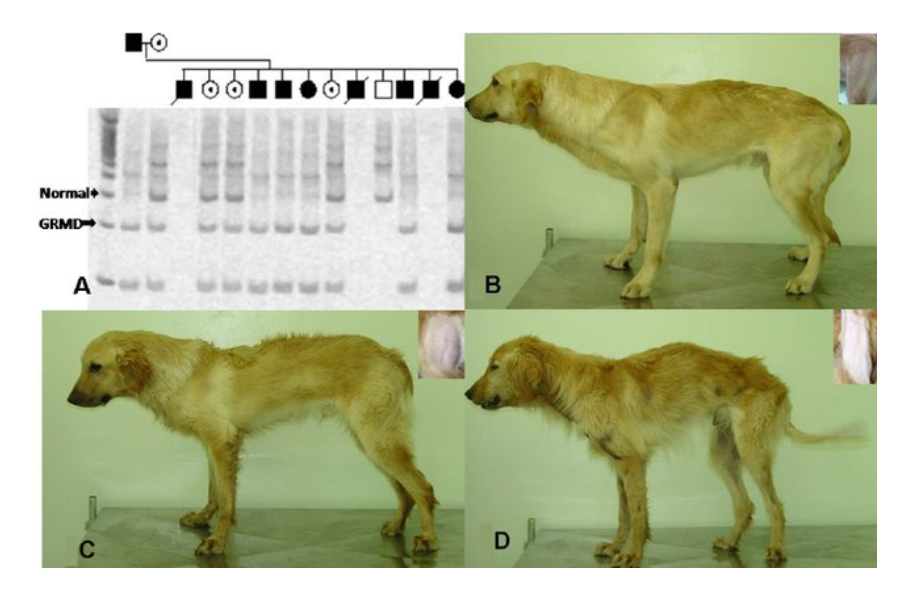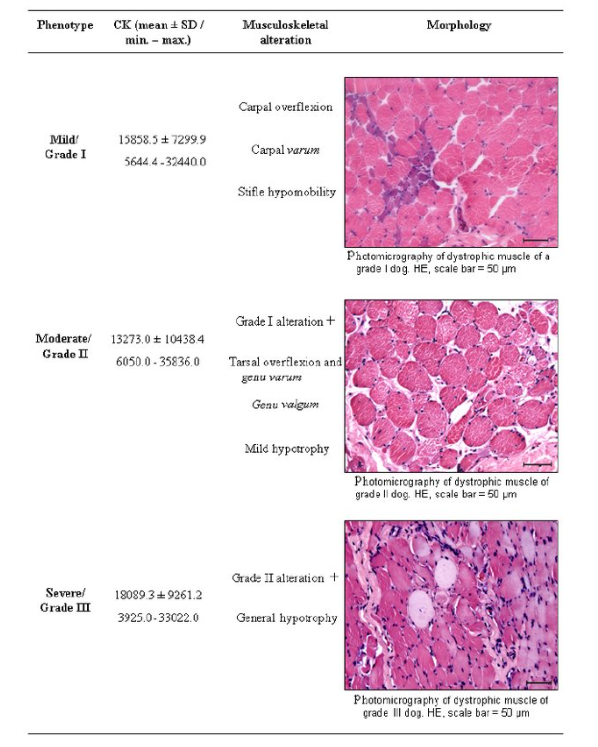Overview of GRMD
Golden Retriever Muscular Dystrophy (GRMD) is a genetic disorder in dogs that closely resembles Duchenne Muscular Dystrophy (DMD) in humans. It is caused by a mutation in the dystrophin gene, leading to an absence or severe deficiency of the dystrophin protein in muscle cells. Without dystrophin, muscle cells become damaged and progressively weaken, leading to the characteristic symptoms of the disease.
Why is GRMD Important for Research?
GRMD has been extensively studied as a preclinical model for DMD due to its similarities in:
- Pathology: Both conditions exhibit muscle degeneration due to the lack of dystrophin.
- Disease Progression: Dogs with GRMD experience progressive muscle weakness similar to DMD patients.
- Clinical Symptoms: Dogs develop gait abnormalities, respiratory difficulties, and cardiac complications.
Symptoms of GRMD in Dogs
Symptoms of GRMD typically appear within the first few months of life and worsen over time. Key signs include:
- Difficulty Walking: Dogs show abnormal gait and reduced mobility.
- Muscle Weakness and Atrophy: Progressive loss of muscle mass.
- Enlarged Tongue (Macroglossia): A common feature in GRMD-affected dogs.
- Breathing Problems: Due to diaphragm muscle weakness.
- Cardiac Issues: Increased risk of heart failure as the disease progresses.
Current Research and Potential Treatments
Scientists are investigating several approaches to treat GRMD and, by extension, improve therapies for Duchenne Muscular Dystrophy. These include:
- Gene Therapy: Introducing functional dystrophin genes using viral vectors.
- Pharmacological Treatments: Drugs aimed at reducing inflammation and improving muscle regeneration.
- Stem Cell Therapy: Investigating ways to replace damaged muscle cells.
- CRISPR Gene Editing: Exploring the potential for correcting dystrophin mutations at the genetic level.
Conclusion
GRMD is a crucial model for studying Duchenne Muscular Dystrophy, offering insights into disease progression and testing potential treatments. Advances in gene therapy, drug development, and stem cell research bring hope for improving the quality of life for both dogs with GRMD and human patients with DMD.


Figures: DOI: 10.4238/vol8-2gmr581














